UPDATE: Maury shared a magazine page on eBay that contains a similar ad to the one shown at the bottom of this page. It’s almost identical, except that Jeep now appears with single-quotes.
The use of single quotes outside of a set of double quotes is uncommon. One editor summed it up best by describing it’s use this way: If a phrase or a word is uncommon or you are highlighting it to the reader for a particular reason – for example, as a neologism or a conscious use of jargon – use single quotation marks. Any punctuation sits outside single quotation marks. Thus, I suspect Willys-Overland felt they could defend the use of ‘JEEP’ by describing it’s presence as a descriptive use of jargon, rather than an attempt to back into the trademarking of the name. However, backing into the trademark using single quotes was exactly what the company was doing.
To answer the question I asked in the original post (was the bottom ad a local dealer or national corporate campaign), given these two ads appeared in two different national magazines, it seems likely this simple ad construction was part of a national campaign by Willys-Overland to begin prepping the public for post war jeep sales, This particular ad appeared in the October 1944 issue of Successful Farming.
This page is for sale on eBay:
The purposeful addition of the single quotes reflects a similar change seen in the iconic Saturday Evening Posts during 1944, as demonstrated in these ads. The first highlighted ad of February 05, 1944, was the first time Willys-Overland replaced the prominent WILLYS stamp on the Post ads with JEEP (or in this case JEEPS) with no single quotes.
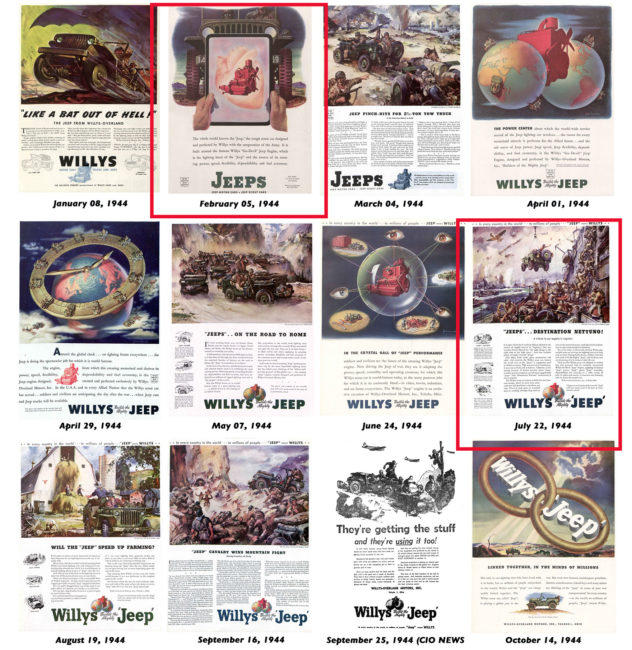
See all the Willys-Overland WWII ads 1941-1946 here: http://www.ewillys.com/2019/03/10/willys-overland-ads-in-the-saturday-evening-post-1942-mid1946/
What isn’t quite the same is that the Midland Journal ad below without the single quotes lasted longer (through October 6 1944) than the Saturday Evening Post ads. Perhaps Willys-Overland purchased several months of ads beginning in June of 1944 right before the addition of the single quotes too place? However it happened, what the ad above shows is that Willys was correcting the single quotes’ issue across its advertising.
Why did the company ad the single quotes in the first place? As I argued in this long post on Willys Overland’s changing identity during WWII, I believe it stems from the 1944 congressional inquiry into the company’s efforts to trademark the JEEP name.
========================
Originally published March 29, 2020: Here’s an unusually small and succinct ad that appeared seven times in the Midland Journal out of Rising Sun, Maryland, from June 30, 1944, through October 6, 1944. I’ve yet to run across this specific ad elsewhere.
One thing to note is that in July of 1944, Willys-Overland began using single quotes around the word Jeep like this ‘Jeep’ major magazine ads, yet that was not done in any of the newspaper ads in the Midland Journal, as shown below. (Ed note …. Yeah, I know, not earth shattering news, but I never know when little details like this will add up to some insight).
The ad shown below was in the August 11, 1944, issue of the Midland Journal:
This shows how small the ad was within the newspaper page.
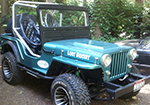
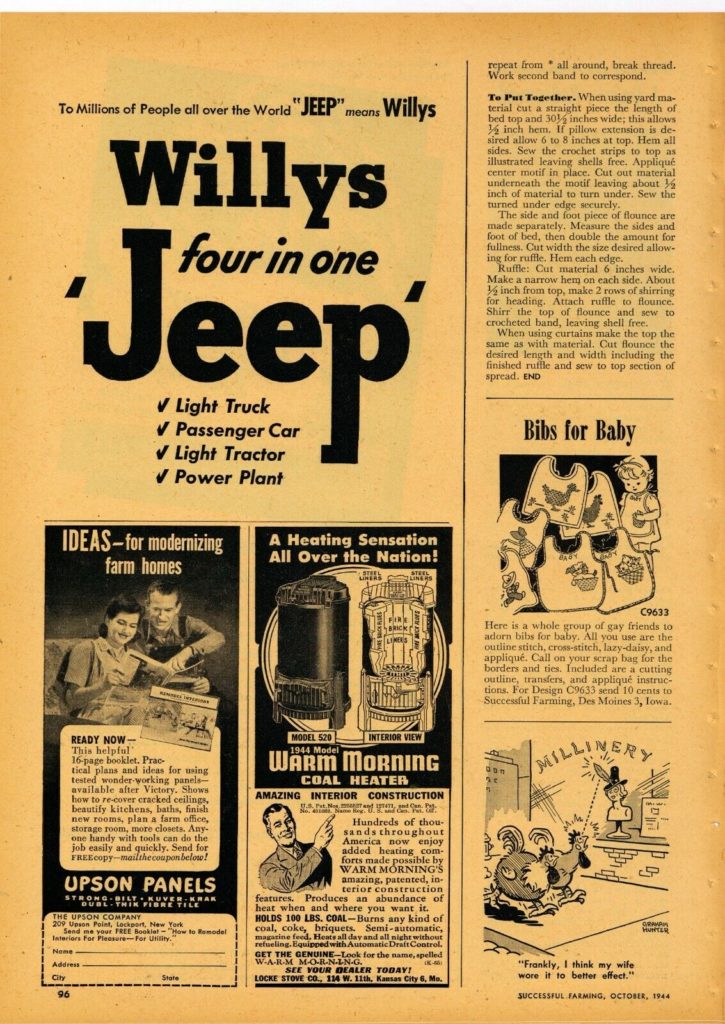
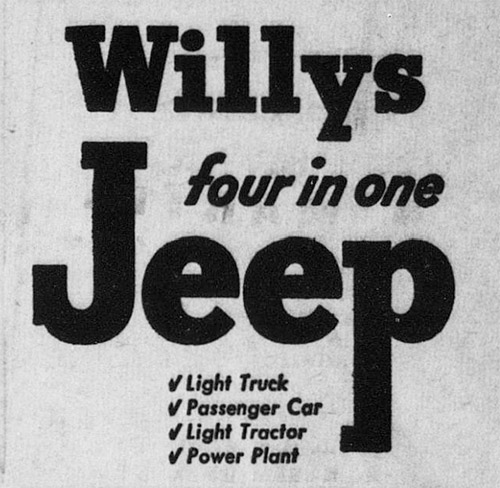
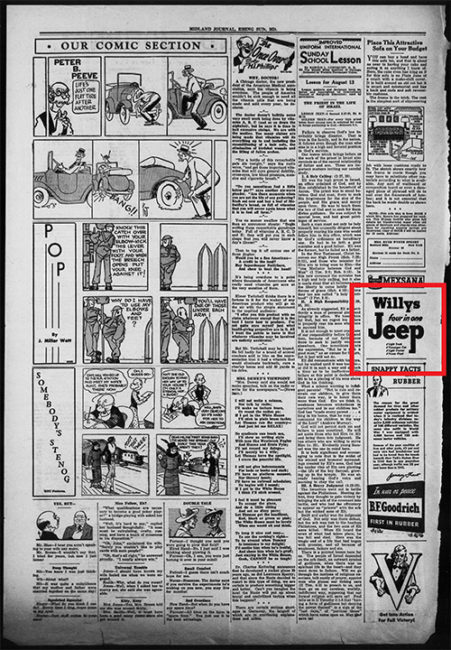
I wish the scan was just a bit higher resolution, because it looks like some interesting content on the rest of the page too, but can’t quite make it out.
Jeep ad message is so simple, Jeeps are just plain utilitarian, and that’s the value.
John,
Did you click on the ad? At full size, it’s readable (though still not hi res): http://www.ewillys.com/wp-content/uploads2/2020/03/1944-10-successful-farming-jeep-ad.jpg (If you click on this link, some browser require you to click on the graphic again to see the full size image). I can make it larger in photoshop and email it to you if need be.
– Dave
Apostrophes ?? or quotation marks ?
Terry: Well, thanks for sending me down a rabbit hole on that one!! I never thought to call them ‘single quotes’; the just looked like apostrophes to me (and it was never an issue I encounter when writing my books, except when there was a quote within a quote, which is the most often used case of the single quote. But, after some research, it seems that is a more appropriate term. Thanks!